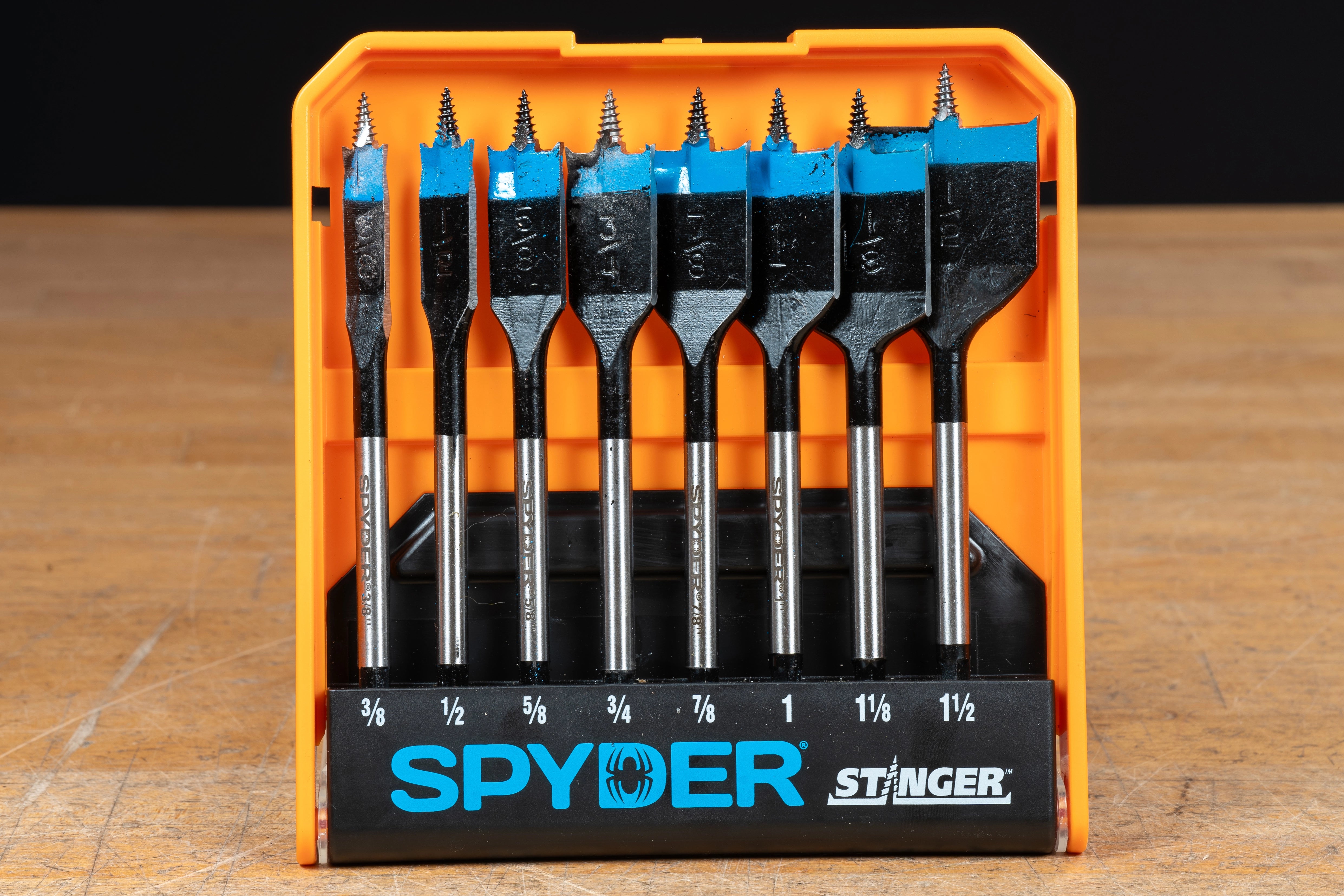Choosing the Right Drill Bits: Your Comprehensive Guide
Introduction
I've discovered that using the correct drill bits dramatically impacts project quality and tool lifespan. Confused about choosing between spade bits, twist bits, or hole saws? You're not alone. Let's simplify your choices by breaking down exactly what drill bit to pick for wood, metal, PVC, or masonry, saving you time, money, and headaches on your next DIY or professional project.
Types of Drill Bits & Their Applications
Spade Bits
Spade bits are perfect for quickly drilling clean holes in softwoods. Their flat, paddle-shaped head rapidly clears out wood chips, making them ideal for tasks like electrical rough-ins or plumbing installations. However, they're not suitable for metal or dense materials. My top recommendation is the Spyder Woodboring Spade Drill Bit Set for efficient wood drilling.


Twist Bits
Twist bits are versatile, ideal for wood, PVC, and especially metal. Their helical flutes effectively eject material and reduce friction, particularly when lubricated. If your project involves various materials, including metals, I recommend investing in the Spyder Mach Blue Drill Bit Set for their robust design and multipurpose capability.



Hole Saws
For larger diameter holes and tough materials like brick, cement, and thick wood, hole saws are the superior choice. They excel in applications such as plumbing rough-ins or electrical installations requiring larger passages. My go-to option is the Spyder Carbide Hole Saw Kit, known for its durable carbide tips and versatile performance.

Factors to Consider When Choosing Drill Bits
Material Type
Always match your drill bit to the material. Wood bits typically have aggressive cutting edges, while metal bits have tougher materials and more refined cutting edges.
Drilling Speed vs. Accuracy
Spade bits offer rapid drilling but less accuracy, ideal for rough-ins. Twist bits provide precise holes at moderate speeds, suited for detailed work.

Impact Driver Compatibility
Not all bits are impact-rated. Ensure compatibility if you plan to use an impact driver.
Cost-effectiveness and Durability
High-quality bits might cost more upfront but often provide better longevity and efficiency, ultimately saving you money.
Common Mistakes to Avoid
- Incorrect Bits Usage: Using inappropriate bits can damage materials, ruin tools, and waste time.
- Neglecting Lubrication: Lubricant reduces friction and heat, extending bit life, especially crucial for metal drilling.
- Compatibility Overlooked: Ensure your drill bits match your drill's chuck size and type.
Maximizing Drill Bit Life
- Proper Storage: Store bits in protective cases to avoid damage.
- Regular Maintenance: Clean and occasionally sharpen bits to maintain efficiency.
- Correct Technique: Match drilling speed and pressure to the material type to prevent overheating and premature wear.

FAQ Section
What drill bit is best for metal?
Twist bits, particularly high-speed steel or cobalt bits, are best for drilling metal.
Can you use wood drill bits on plastic?
Yes, but drilling slowly to prevent melting and cracking is advised.
Why does my drill bit keep slipping?
Ensure you're using a sharp bit, applying proper pressure, and the drill chuck is securely tightened.
What's the difference between a spade bit and a hole saw?
Spade bits are quick for smaller, rough holes in wood, whereas hole saws are used for larger, cleaner cuts in various materials.
How do I sharpen drill bits?
Use a specialized drill bit sharpener or bench grinder for consistent sharpening.
